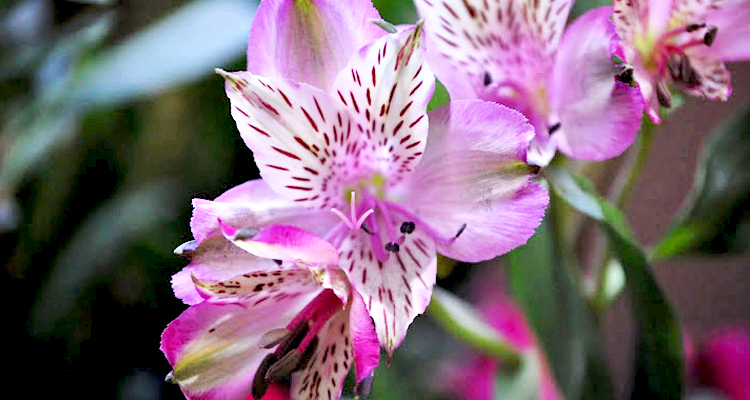New Varieties of Chilean Alstroemeria (Lily of the Incas)

Summary
This selection of new native genotypes of Chilean Alstroemeria provides consumers with greater variety and the flower traits commonly sought-after in the landscaping market, such as a compact habit, new colors and sizes.
A key aspect of this selection is its phytosanitary status, specifically as far as viruses are concerned, since alstroemerias are a species known to propagate primarily in plant form. These native genotypes undergone health inspections which help to identify the range of viruses that could potentially infect the native alstroemeria varieties, including those that are not described, and this way the selected plants remain virus-free.
By sequencing the germplasm’s genotype researchers were able to determine the variability of populations under study. This allowed researchers to be more precise when selecting the genetic material and thereby speed up the genetic improvement process.
New targeted crosses have been performed with native germplasm in order to make progress on obtaining compact hybrids suitable for pots, parks and gardens with domestic and export market potential. Adding the native germplasm to the genetic improvement program is also helps to preserve Chile’s ample genetic resources.
Potential Applications
- Gardening and Landscaping
- Using Native Flora in Green Area Management
- Native Flower Exports
Development Status
TRL 4 – Validating products in a controlled environment: Hybrid potted plants grown in greenhouses, micro-propagation, and maintaining cultures of parental cell lines.
Advantages
This variety could adapt better to gardens (compact) and pots and be used in landscaping projects. Most of the varieties currently available in Chile today are for cut flowers.
Intellectual Property
The hybrids have not yet been registered.
Opportunity
This technology is available to companies wishing to receive a transfer of parental lines for continued development. It is also available to companies wishing to form a partnership to conduct preparatory field tests and move forward with registering the plant variety.
Research Team
Marlene Gebauer, School of Agronomy and Forestry Engineering
